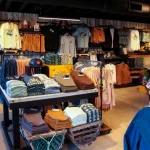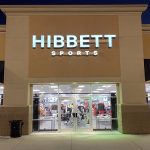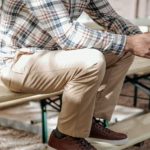Collective Brands, Inc. gave the market a peek inside its business model at its recent shareholder meeting, providing investors, analysts and the media with a pretty comprehensive look at a model that merges once divergent wholesale, retail and licensing businesses into a cohesive new structure that leverages the strengths of each area of business, maximizes revenues, and leverages infrastructure and economies of scale in the supply chain.
“Collective Brands will be more than simply the sum strength of our business units' individual core competencies, expertise and heritage; we intend to leverage this exceptional foundation to become the preeminent, consumer-centric, global footwear, accessories and lifestyle brand company,” said Matt Rubel, president and CEO of Collective Brands, Inc., at the meeting held in New York.
CBI was formed last month after Payless Corporation completed its acquisition of The Stride Rite Corporation and its iconic brands, Stride Rite, Keds, Sperry Top-Sider, Saucony and Tommy Hilfiger Footwear, and merged the company into the new entity that also includes Collective Licensing International, which Payless acquired earlier this year.
Mr. Rubel said that the combined entity would see cumulative synergies in the range of $45 million to $50 million by 2010, with specific year synergies of $5 million in 2008, $12 million to $15 million in 2009, and $25 million to $30 million in 2010.
The CEO laid out a clear vision for a company that is focused on being consumer-centric in everything they do, whether it's building databases of information to better understand the consumer and how they use and get excited about footwear, or coming up with new ways to deliver that to that customer, whether through wholesale, retail, or e-commerce — domestically and internationally. This vision will be realized through three distinct divisions operating independent of each other, but also feeding off each other where appropriate. Its a unique model that focuses on brand messaging and the complete delivery of the message to the consumer.
Payless ShoeSource was described as the “core business,” which Rubel said is “democratizing fashion” through nearly 4,600 stores, including 600 outside of the United States.
Collective Licensing International, which was developed by former Airwalk and Brooks executives, Bruce Pettet, Eric Dreyer and Scot Cain, is focused on brand management and global licensing of youth, lifestyle and high-quality fashion athletic brands.
“We have built brands through this unit when they were independent from us, and will continue to build the existing brands as well as new brands through this exciting licensing model, which brings a great income stream to us with very low cost of capital,” said Rubel.
The Stride Rite Corporation provides CBI with a stable of solid American brands that can be leveraged both domestically and internationally. Rubel said the strategic decision to acquire the SRR business was based on observations that branded footwear was outpacing private label in the marketplace and the core Payless business, while improving its branded presence, was primarily focused on the private label side of the business.
In further outlining the rationale behind the Stride Rite deal, Mr. Rubel also pointed to demographic shifts in the market that favor the companys brands. He said that children's footwear is growing faster than other age segments, fueled by a 5% increase in birth rate, with nearly half of that growth coming from the Hispanic community. He also said the casual footwear segment is accelerating, driven by the aging baby boomer segment, with trends toward more “casualization” and branded footwear.
Mr. Rubel also sees the international operation in place at Stride Rite as a base from which to expand the overall CBI business at a much higher rate than the domestic business.
“As a corporation, we will do over $500 million outside of the United States,” said Mr. Rubel. “It is our intent to take the platform that is in place with the Stride Rite Corporation and to amplify it, to feed it, and to build the international business of this corporation so that it can more than double and perhaps triple the rate of growth that you will see domestically in our core businesses.”
In summarizing his introduction of his management team, Mr. Rubel said that Payless ShoeSource had sales of $2.8 billion and sold nearly 11% of the units in footwear in the United States. He described the new company as a global leader with 4,900 stores, selling approximately 220 million pairs of footwear worldwide and one out of every five children's pairs sold in the United States.
Its a company that is now in 15 countries and territories, with a broad consumer base. The consumer base is broken down as 51% in women's, 25% in children's, 16% in men's, and about 8% in accessories.
With The Stride Rite Corp. now functioning inside this new model, it was interesting to hear from the heads of each of the business units under its umbrella.
Pamela Salkovitz, president of the Stride Rite Children's Group, described her business as a “unique retail/wholesale model that is committed to building the premier brand across the world for children.” She said they will do $300 million in sales this year on a stable of brands that they design, market and distribute through 327 of their own stores, as well as through a multi-channel network that totals 4,000 doors across the country.
Stride Rite is the childrens segments largest brand and boasts a 4% share of all children's shoes sold in the U.S. They ship over 11 million pairs of shoes into the market, making the brand the largest premium non-athletic children's shoe brand and the largest premium retailer of children's non-athletic shoes.
Adding to the childrens group range is the Robeez brand, which SRR acquired about a year ago to service the newborn to about one-year-old consumer. The other brands that complete the kids portfolio include Sperry, Tommy Hilfiger, Saucony and Born, which are all adult brands that SRR has taken down to kids.
Ms. Salkovitz said their full-price specialty doors are approximately 1,200 square feet and produce roughly $582,000 per door annually. The outlet stores are larger, with just under $1 million in sales in 2,800 square feet. She said that the under-three-year-old segment was 39% of the business, but they have seen more growth coming from the over-five-year-old segment, which is now about 28% of the business. As far as gender mix goes, it is approaching 50/50, with 55% in girls and 45% in boys, but the boys side continues to grow as they target specific product towards them. One initiative that will come out of the SRR acquisition is a new line of Airwalk footwear for kids that will be sold through the Stride Rite stores.
Shawn Neville, president of The Keds Corporation, said the Keds brand is currently in a period of stabilization as they work to re-build the brand younger with new products built around its core heritage and reestablishing a premier distribution base they hope will create equity and aspiration for the future.
“The Champion at its peak in 1993 was almost a $300 million business,” said Neville. “It is a fraction of that today, but we believe we've raised prices, positioned it as a premium aspirational base within our brand and built around it, fun exciting derivatives of it, that business is starting to grow.”
The moves are being made to offset the challenges Keds was facing in the market as prices deteriorated in a growing mid-market and value channel business and the consumer base continued to trend older.
“Over the last three years, although business has declined in the U.S., we believe we've better positioned it to grow by establishing the base with both premier growing from 7% to 17% of our business and the value business dropping almost 75%,” said Neville.
The second area of focus for Keds is the international business, which has grown to 10% of sales from 3% of sales, but that also comes as the business in the U.S. has shrunk as the brand pulled back from the value channel. Neville pointed to other brands in the athletic lifestyle market that have 40% of their business coming from international as setting the benchmark. Western Europe is currently less than $5 million and he looks at competitive brands with businesses in excess of $100 million in the region. He sees the international segment grow to “minimally 14% of the business.”
Mr. Neville said they have been successful in repositioning the brand to build average selling prices to about $24 in the U.S., up from a little under $20 previously. In doing so, margins have grown to the mid-40s from the mid-30s, but he has set a goal of achieving the mid- to high-40s margins realized by the competition.
“The core has still been weak, but as we position it in specialty shops and outside the U.S., it is what's fueling out growth,” said Neville. “And long term that heritage is a key anchor for us.”
>>> Next week, Sports Executive Weekly will highlight the companys plans for Saucony, Sperry Top-Sider, and the Collective Licensing businesses. Look for full coverage of CBIs unique new model in next months issue of SGB…














